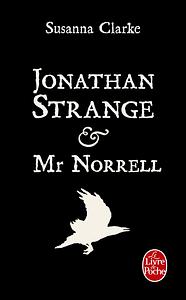You need to sign in or sign up before continuing.
Take a photo of a barcode or cover
slow-paced
adventurous
dark
mysterious
slow-paced
Plot or Character Driven:
Character
Strong character development:
Complicated
Loveable characters:
No
Diverse cast of characters:
Complicated
Flaws of characters a main focus:
Yes
challenging
emotional
mysterious
reflective
tense
slow-paced
Plot or Character Driven:
Character
Strong character development:
Complicated
Loveable characters:
No
Diverse cast of characters:
Yes
Flaws of characters a main focus:
Yes
adventurous
dark
mysterious
sad
slow-paced
Plot or Character Driven:
Plot
Strong character development:
Yes
Loveable characters:
Yes
Diverse cast of characters:
No
Flaws of characters a main focus:
Yes
Moderate: Racism
There is a single black character in the book who is frequently referred to by outdated slurs for the sake of historical accuracy. It’s not distasteful, but it’s hard to miss
I wanted to like it, I really did. I mean, it started out with an interesting premise, after over 300 years, one talented practitioner tries to bring English magic back to popularity in Victorian England. If the story falls flat, it's because there is very little magic in it. The sense of wonder that should have been there is buried under endless footnotes to books that most of us will never be able to find, let alone read (if they even exist at all)! In general I gave it two stars for an interesting premise, but only two for very poor execution.
I scarcely imagine that I shall encounter again a novel that delights in such fantastical narratives, witty and exacting language, and elegantly composed tomfoolery. All tied up at the close in the most sublime bow that leaves its reader wanting for nothing. If only I could etch-a-sketch erase my brain and take this in anew.
10 🌟
10 🌟
adventurous
funny
mysterious
tense
slow-paced
Plot or Character Driven:
A mix
Strong character development:
Complicated
Loveable characters:
Yes
Diverse cast of characters:
Complicated
Flaws of characters a main focus:
Yes
adventurous
funny
hopeful
reflective
relaxing
slow-paced
Plot or Character Driven:
Character
Strong character development:
Yes
Loveable characters:
Yes
Diverse cast of characters:
Complicated
Flaws of characters a main focus:
Yes
Jonathan Strange & Mr Norrell is an extraordinary achievement, and reading it feels like discovering a hidden corner of Victorian literature that has only just been unearthed, yet it was written by a modern author Susanna Clarke, whose ability to replicate not only the tone but the very soul of 19th-century prose is nothing short of astonishing. Her writing is richly textured and immersive, full of clever wit, subtle satire, and a sense of grandeur, weaving an alternate England where magic is not just an idea but a deeply rooted, historical reality. Every page is soaked in atmosphere, with attention to manners, politics, and dusty libraries, where men in wigs argue over metaphysics and footnotes stretch out like secret hallways of forgotten lore. Clarke does not merely set her story in the Regency/Victorian era, she writes in it, mimicking the rhythms, cadences, and peculiarities of the time with such skill that one often forgets this book was published in the 21st century. What makes this novel unforgettable, however, isn’t just the beauty of its language or the meticulous detail of its world, but the philosophical and emotional questions at its core: what is magic for, who deserves to wield it, and how does power shape the soul? The novel explores the many shades of ambition, control, freedom, and forgotten identity, all through characters who are flawed, fascinating, and deeply human. It is not a fast-paced book, and it isn’t meant to be, Clarke wants you to dwell in her world, to get lost in its winding corridors, to read even the footnotes like spells. The tension between old magic and new authority is everywhere there are those who wish to confine magic to scholarly debate, and those who recognize that it is ancient, wild, and cannot be governed by footnotes or contracts. In that regard, one of the most striking lines comes from Jonathan Strange, when asked, “Can a magician kill a man by magic?” and he replies, “A gentleman never would.” The restraint here is deceptive, it reveals a deep concern with morality, with what it means to act justly when given immense power, and it resonates far beyond the page. The characters speak with intelligence and sometimes cutting irony; at one point, the narration describes a fairy as someone who “hardly looked like a man at all. He was more like the idea of a gentleman, and the idea had not been a particularly well-thought-out one,” encapsulating Clarke’s ability to skewer elegance with wit while never losing her sense of mystery. Mr Norrell, a man who says, “There is no book so bad that it does not contain something good,” represents the obsessive scholar, possessive, fearful, brilliant while those around him, particularly Childermass, seem weighed down by his control, held back by a system that fears magic’s return to the hands of common men. And then there is the quiet, powerful moment of reckoning when one man once invisible is ready to take his place in history, declaring, “I am coming, John Uskglass! I am coming!” a line that hums with rising thunder and the reclaiming of lost power. At its heart, the novel is about return: the return of magic, of forgotten names, of justice long deferred. Susanna Clarke has not just written a book; she has cast a spell along , slow, precise incantation that demands your patience and rewards it with wonder.






